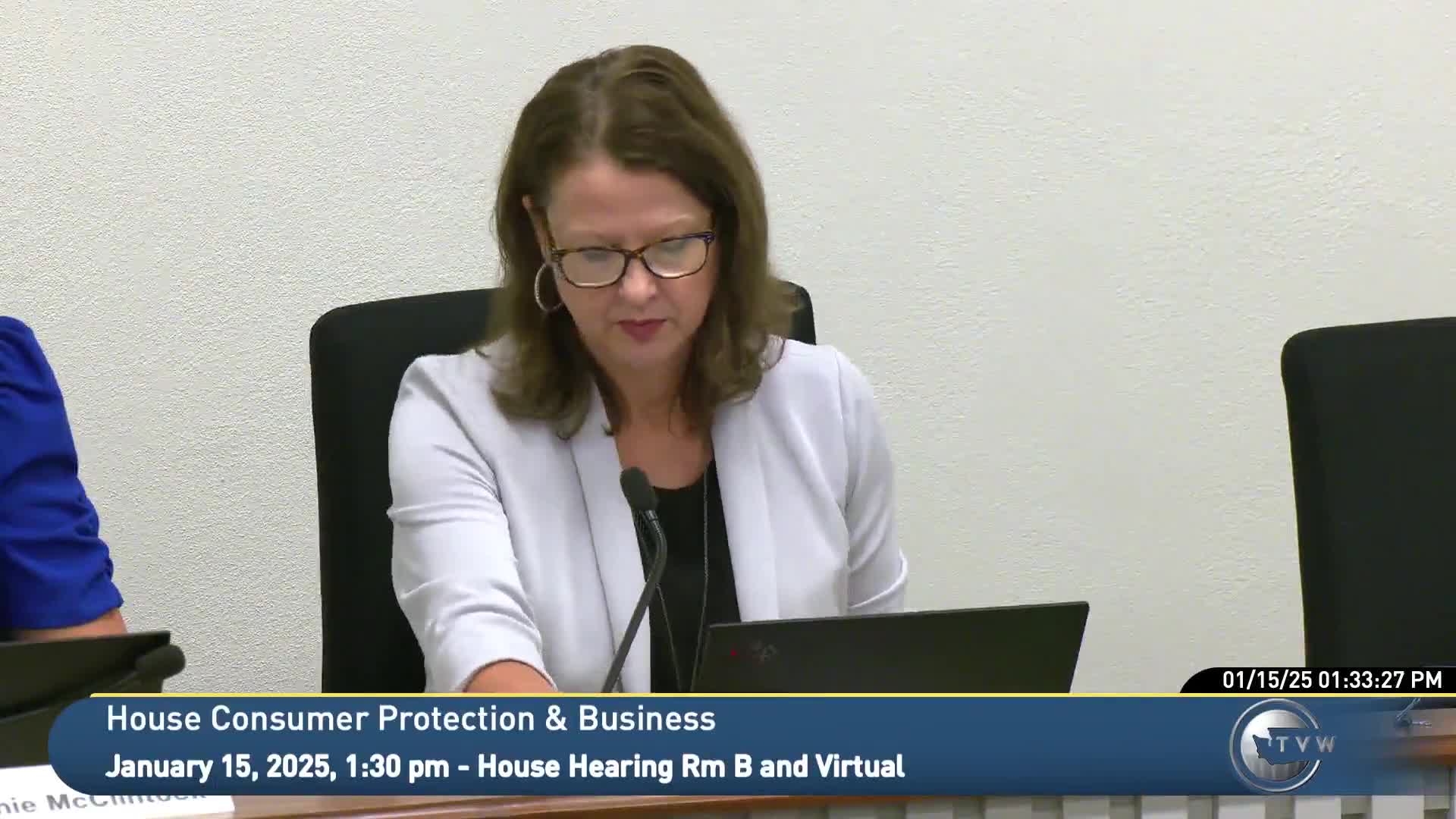Committee hears bill to require full fee disclosure for hotels and short‑term rentals
Get AI-powered insights, summaries, and transcripts
Subscribe
Summary
The Consumer Protection & Business Committee opened a public hearing Wednesday on House Bill 1080, which would require hotels and short‑term rental operators to include all mandatory fees in advertised or displayed rates and show government taxes and fees before a guest finalizes a reservation.
The Consumer Protection & Business Committee opened a public hearing Wednesday on House Bill 1080, which would require hotels and short‑term rental operators to include all mandatory fees in advertised or displayed rates and show government taxes and fees before a guest finalizes a reservation. Committee staff provided the briefing and Representative Brandy Donaghy, the bill’s prime sponsor, outlined the measure.
The bill would require lodging operators and short‑term rental hosts to disclose “all fees required to reserve a stay” in any advertised, displayed or offered rate, excluding government taxes and fees; the bill would still require that government taxes and fees be included in the total price before a guest completes a reservation. The bill text, as described by staff, also sets a civil penalty of $10,000 per violation enforceable by a city attorney, a county prosecuting attorney or the attorney general.
Why it matters: supporters say upfront, inclusive pricing prevents surprise charges for travelers and creates a level playing field across search results and booking platforms. Staff told the committee that state statute defines hotels and short‑term rentals for the purpose of the bill: a hotel is a lodging place held out to the public with three or more rooms used for guests; a short‑term rental is a dwelling unit offered for fewer than 30 consecutive nights and not a hotel, motel or bed and breakfast.
Staff summarized the federal context: in December the Federal Trade Commission finalized a rule requiring covered short‑term lodging entities to disclose the total price, including mandatory fees (excluding government charges), and to avoid misrepresenting fees or the identity of goods or services for which a fee is charged. Committee witnesses from the travel and hospitality industries told the committee they support price transparency but asked the Legislature to pause or align state action with the federal rule.
Industry testimony: a representative of Expedia Group said the company supports price transparency but warned that the FTC rule and a pending federal Hotel Fees Transparency bill (sponsored in the U.S. Senate) create a nationwide standard that, if implemented, would make a state law unnecessary and could introduce conflicting compliance burdens. The Hospitality Association of Washington said the bill’s language is largely consistent with the FTC rule but asked that locally authorized tourism promotion or tourism improvement area assessments be explicitly treated as government taxes or fees.
Sponsor response and committee questions: Representative Brandy Donaghy said the bill was intended to ensure consumers “know what they're going to have to pay for when they're making a decision to pay to do something, staying somewhere.” She said she will monitor the federal developments and is willing to amend the bill if the federal standard leaves gaps. Committee members asked about whether the Consumer Protection Act would be implicated; staff advised that committee counsel and industry counsel should examine interplay with federal standards and enforcement mechanisms.
What’s next: the committee closed the public hearing on HB 1080 and continued other agenda items. No formal vote occurred during the hearing.
